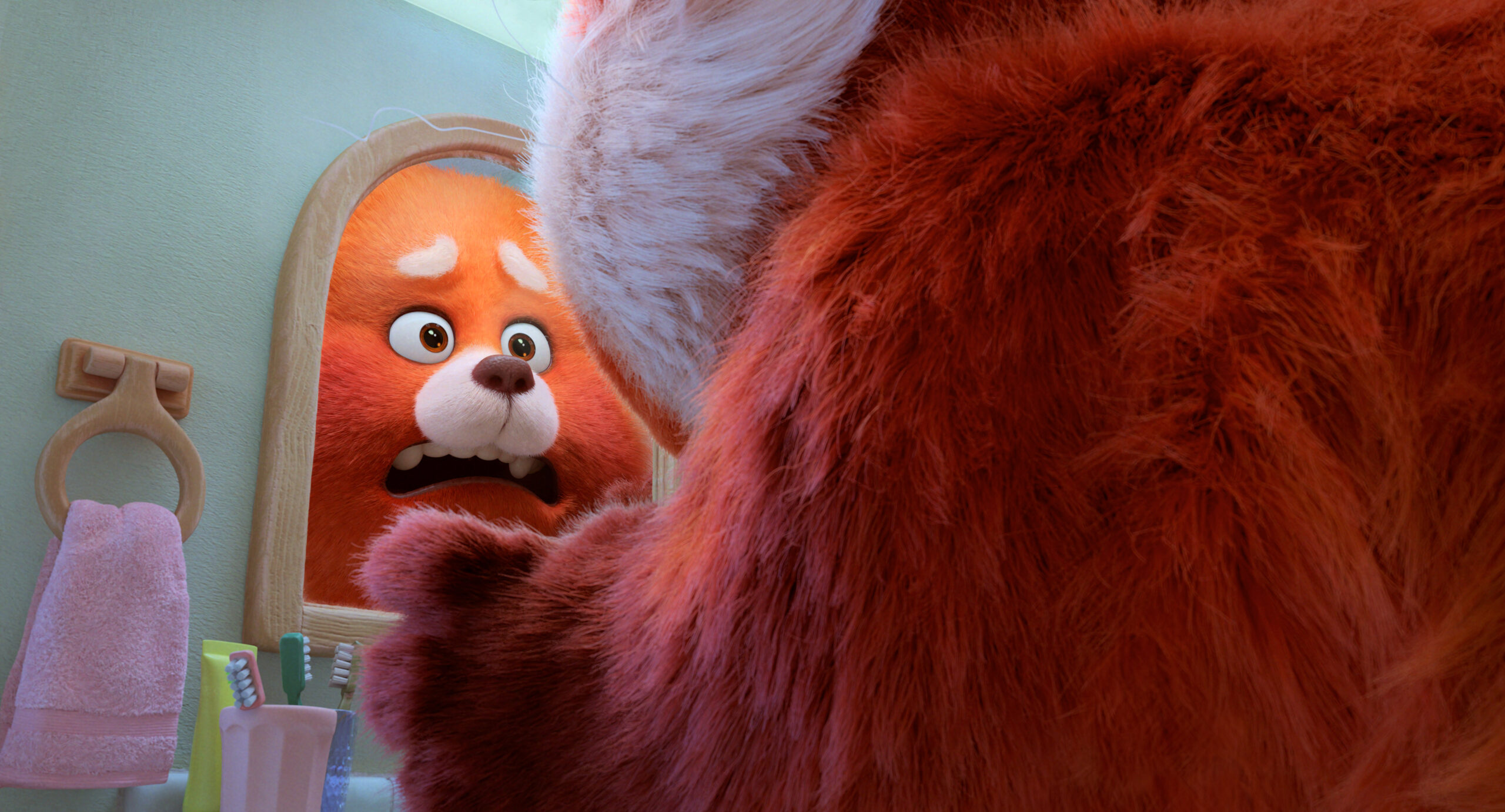Pixar’s latest masterpiece, Turning Red, is a coming-of-age story like no other. I felt seen in so many ways while watching this film—whether it was by the diabetes tech on side characters or the first-born-daughter duties, Turning Red has become my go-to as I continue to heal my trauma. Set in the early 2000s, the film gives us a confident, nerdy Mei-Mei who overachieves and honors her parents. If that wasn’t relatable enough, the all-women creative team behind Turning Red even included a scene addressing a thirteen-year-old’s potential first period.
Almost a year ago, Pixar’s Luca inspired me to prioritize my mental health. I was filling out paperwork with my very first therapist, confronted with questions about my relationships with my siblings and my parents. After ten months of therapy, I’m ready to extend grace to different versions of myself, including Mei-Mei-adjacent, boy-band-obsessed thirteen-year-old me.
Mei-Mei and Me

In the very first line of the film, Mei-Mei reminds us that “honoring your parents sounds great, but if you take it too far, well, you might forget to honor yourself.” It’s an important lesson but it takes a while to reprioritize those beliefs, to find the right balance. As a first-gen, eldest daughter, I’m still dealing with the burden of responsibility and strict parental traumas as an adult. But Mei-Mei reminds me that I can choose my own path.
Watching our heroine’s journey, awakening from her strict parental bubble as an adolescent teen, helped me realize how much of that trauma I still carry with me. I’ve been in therapy for less than a year and I’m barely scratching the surface of my reprogramming. Turning Red makes my healing process a little less lonely, let’s me know that I’m not alone. For example, as the daughter of overbearing parents, Mei-Mei is programmed to discipline herself. She does so throughout the film in scenes that were a mirror of anxious tendencies I’m still trying to break free from.
There’s a moment for every child of immigrant parents when we start to lean towards interests from our own, first-gen experiences. Whether it’s new hobbies or boy bands, it can be really difficult to take a stand and sometimes that stand means distance. For Mei-Mei, it means white lies and a supportive friend group. It also means taping into her, inner wild panda and embracing her transformation even when her family assumes she will shun it. I love this metaphor of the panda and am still learning to choose it first.
Maternal Generational Trauma

As daughters, we have complicated relationships with our mothers. When I first started therapy, one of the things I worried about was leaving my family behind. I wanted to save them from their traumas. Like the fixer I am, I thought learning to heal myself would provide the tools I needed to heal them too. Unfortunately, that’s not how it works. No matter how much I want to save them, I cannot. They have their own traumas. Things they might never share. Internal struggles that they have to heal themselves.
There’s a scene in Turning Red that captures this perfectly. When Mei-Mei approaches her mom as a child, we see Ming (Mei-Mei’s mom, voiced by the brilliant Sandra Oh) crouched down in a fetal position, repeating that she’ll never be enough. That scene makes me cry every time, each tear one step closer to healing the generational trauma we daughters carry for our mothers. We realize, just like Mei-Mei, that our mothers have been carrying this pain for years. They have passed their trauma down as anxious tendencies or family burdens for their first-gen kids.
Healing Generational Trauma

While I still don’t want to leave my family behind, sometimes I have to go on my own path, just like Mei-Mei does. She chooses to keep the panda, embracing it as a part of who she is. She challenges the perfectionist status quo of locking it away as a family curse until the next generation simply just has to deal with it. I think there are a lot of traumas we can share with our mothers but I keep reminding myself that I won’t be able to heal those parts of my mother the way I yearn to. I do believe the work we do for ourselves will make a difference though—we can be cycle breakers just like Mei-Mei.
The thing I hope is that my healing journey will inspire my family to dig deep into their wounds and start to heal the trauma they carry. One of my favorite healing moments in Turning Red is when Ming turns to her daughter and says, “You’re so hard on yourself, and if I taught you that I’m sorry…the farther you’ll go, the prouder I’ll be.” We might not hear those words from our own family, but they can certainly help our healing journey. Whether our traumas are tied to family curses with giant red panda puberty moments, or they’re passed down as learned behaviors, Pixar films continue to be a great tool to help us heal and process generational trauma.

